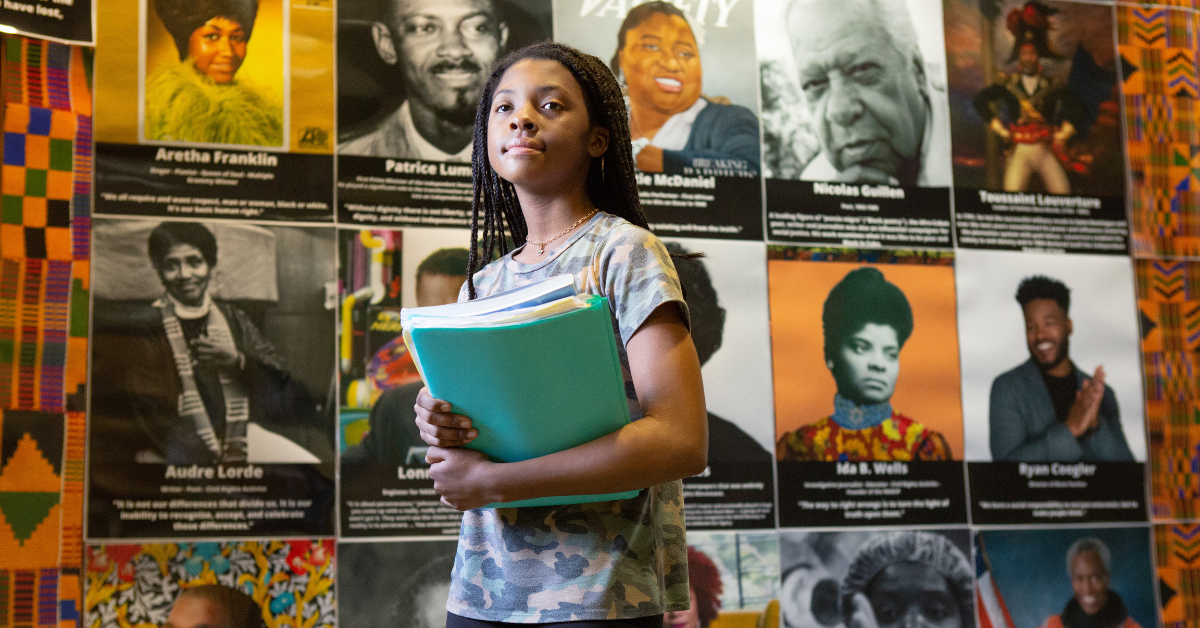
When high school students in Tuscaloosa, Alabama, were allegedly told they couldn’t discuss slavery and civil rights during a Black History Month program because it made an administrator uncomfortable, they voted with their feet. Literally.
More than 200 Hillcrest High School staged a walkout. Tuscaloosa County Superintendent Keri Johnson denied that the students were told slavery or the civil rights movement could not be part of the program.
Still, the students’ message was clear.
“For you to tell me I can’t talk about something that is dealing with my culture is very disturbing, it’s very confusing,” senior J’Niyah Suttles told WBMA-TV. “Without our history we are nothing. Without teaching our youth where we come from, how can we move forward?”
Throughout the country, as strong resistance mounts regarding teaching certain elements of Black history (whether termed critical race theory or “divisive concepts”), there also is growing backlash from students, parents and educators against attempts to block or water down the teaching of that history.
Consider:
So what are students, parents, teachers and educators to do if they believe their Black History offerings are insufficient?
Sharif El-Mekki, CEO of The Center for Black Educator Development, said the first thing students, parents and others must do is speak their minds. He said educators also must listen to what students who are aggrieved by the backlash have to say.
“Students in schools can be encouraged to share their experiences with learning whether they view the current content and material as relatable to their lives today or the lives they imagine for themselves,” El-Mekki said. “Does education provide the lessons and tools you need to navigate the world (curriculum, exposure)? How do you ask kids if they have windows, mirrors and sliding doors?”
As is happening in school districts across the country, parents and educators who fear students are being shortchanged when it comes to Black history instruction or culturally relevant curricula, should band together to fight for change.
“Those who feel that they are being shortchanged ought to make their feelings known to their superintendents and boards of education,” explained Fadhilika Atiba-Weza, executive director of the National Alliance of Black School Educators. “They ought to work with those who are supportive of their positions – civic, civil, educational, and social organizations, among others. They must contact their representatives at the various levels and government and make their positions known.”
El-Mekki agreed.
“Organized parents can lobby schools for culturally relevant pedagogy and curriculum that is diverse and inclusive of their children,” he said. “It is not unprecedented for families to lobby for their interests. Parents can lobby for curriculum and content to be culturally aligned.”
El-Mekki believes creating more independent schools where Black self-determination and that of Black students/children is encouraged, supported and nurtured is one solution to the problem of instruction which downplays key elements of Black history.
“By modeling this, it provides students with a template and orientation. I know that my classmates learned this from the elders at NidhamuSasa. They felt the only way they could provide an alternate, intellectually and culturally safe school was to start one,” El-Mekki said. “Organized parents may take advantage of resources and form learning cooperatives, microschools and convene to determine the tutoring that's needed for their and others' children to succeed and collaborate so that these enrichment opportunities are available for kids regardless of their parents' income. While we may not all have the means to start a school, we can use our resources, the internet, convening spaces, our networks to disseminate everything we want our children to know."
El-Mekki said concerned students, parents and educators can’t wait on lawsuits to be fought or policies to change as another generation of students is lost.
“We must invest and own out-of-school time to ensure that they are cultural and intellectual building opportunities for our students as well as serve as detox centers for our students who are trapped behind enemy lines,” he said.
Atiba-Weza added, “Contrary to what the detractors say, Black history is not being taught to punish or embarrass others. It is taught so we may know and appreciate that which preceded us and enables us to move forward better than we have done thus far.”
Mark R. Lowery was formerly managing editor of Ed Post. He is a veteran journalist who has managed national magazines and worked for major newspapers, including New York Newsday, the Detroit Free Press and the Plain Dealer. He previously served as editorial director of October Research.
The fight for educational equity has never been just about schools. The real North Star for this work is providing opportunities for each child to thrive into adulthood. This means that our advocacy...
Your donation will support the work we do at brightbeam to shine a light on the voices who challenge decision makers to provide the learning opportunities all children need to thrive.
Ed Post is the flagship website platform of brightbeam, a 501(c3) network of education activists and influencers demanding a better education and a brighter future for every child.
© 2020–2024 brightbeam. All rights reserved.